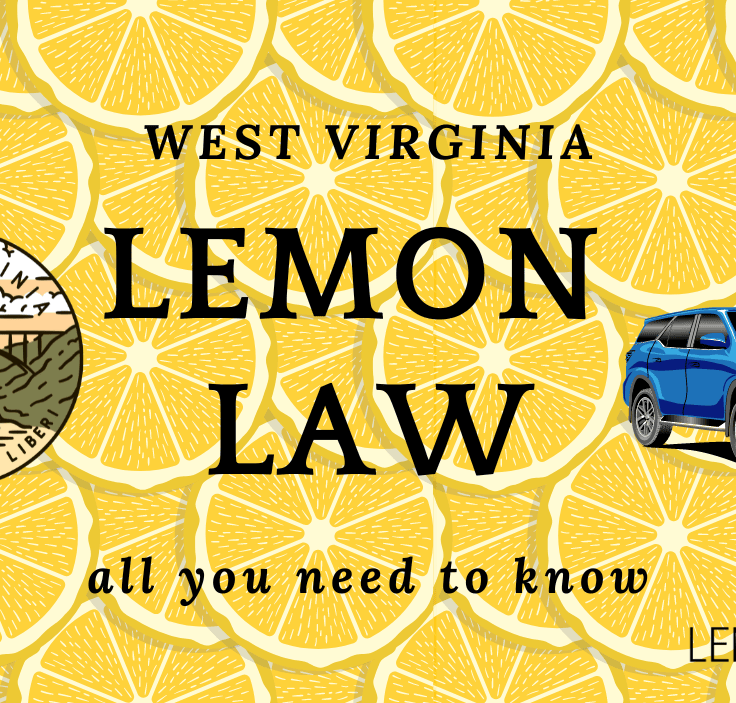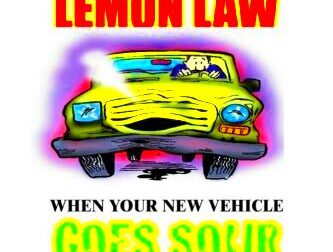Understanding West Virginia Lemon Law for Car Buyers
The Lemon Law in West Virginia is designed to protect consumers who purchase vehicles that turn out to have significant defects. If you buy a new or used car and it doesn’t perform as expected, the Lemon Law may offer you a way to seek relief. This law aims to ensure that car buyers can get a refund or a replacement for a defective vehicle, making the car-buying experience less stressful.
The Lemon Law applies to vehicles that have serious problems that affect their use, safety, or value. If your car has been in the shop multiple times for the same issue and remains unresolved, it may qualify as a lemon. Each state has its own rules, and West Virginia is no exception. Understanding how this law works can help you navigate any problems you might face with your vehicle.
Who is Protected Under the Lemon Law
The Lemon Law in West Virginia protects various consumers, including:
- Individual Buyers: People who purchase a vehicle for personal use.
- Leasing Consumers: Individuals who lease cars are also covered under the law.
- Businesses: Small businesses that purchase a vehicle primarily for business use may qualify as well.
However, it’s important to note that the Lemon Law does not cover all vehicles. For instance, vehicles used for commercial purposes or those purchased “as is” might not be eligible for protections. Understanding your status can help you make informed decisions if your vehicle turns out to be defective.
What Qualifies as a Lemon Vehicle
In West Virginia, a vehicle may be considered a lemon if it meets specific criteria. Here are the key points:
- Serious Defects: The vehicle must have a defect that significantly impairs its use, safety, or value.
- Repeated Repairs: The same issue must be repaired at least three times, or the car must be out of service for a total of 30 days within the first year or 12,000 miles.
- Notification: The manufacturer must be given a chance to fix the problem. If they fail to do so, the vehicle may qualify as a lemon.
Additionally, minor issues like cosmetic defects or normal wear and tear do not qualify as lemon characteristics. If you’re unsure whether your vehicle qualifies, consider consulting a legal professional who specializes in Lemon Law cases. They can guide you on your specific situation.
Steps to Take if You Have a Lemon Car
Discovering that your car might be a lemon can be frustrating, but knowing the right steps to take can make the process smoother. Here’s what you should do if you suspect you have a lemon car:
- Document Everything: Keep detailed records of all repairs and communications with the dealer or manufacturer. This includes dates, times, and what was discussed or repaired.
- Notify the Dealer: Contact the dealership where you purchased the vehicle. Inform them of the recurring issues and give them a chance to fix the problem.
- Get a Written Estimate: If the problem persists, request a written estimate of the repairs needed. This will help in your claim process.
- Keep All Repair Receipts: Maintain a file of all repair receipts and service records. These documents will be crucial when you file your claim.
- Consider Consulting a Lawyer: If the dealer is unresponsive or the issues remain unresolved, consider consulting an attorney who specializes in Lemon Law cases.
Following these steps can help protect your rights and provide you with a clear path toward resolution.
How to File a Lemon Law Claim
Filing a Lemon Law claim can seem daunting, but breaking it down into steps can make it easier. Here’s how to navigate the process:
- Review the Lemon Law: Familiarize yourself with West Virginia’s Lemon Law provisions to understand your rights and obligations.
- Gather Documentation: Collect all the necessary documentation, including repair records, communication with the dealer, and your vehicle’s purchase information.
- Send a Formal Demand Letter: Write a demand letter to the manufacturer or dealer, outlining the defects and requesting a remedy. Include copies of your documentation.
- Wait for a Response: After sending the letter, wait for a response. The manufacturer has a specific time frame to address your claim.
- File a Claim with the State: If the manufacturer does not respond satisfactorily, you may need to file a claim with the West Virginia Attorney General’s Office or take legal action.
Remember, each case is unique, so consider seeking legal advice to ensure you’re taking the right steps for your situation.
Potential Remedies for Lemon Law Claims
If your claim is successful, you could receive one of several remedies under the Lemon Law. Understanding these options can help you know what to expect:
- Vehicle Replacement: You may receive a replacement vehicle of similar value if your car is deemed a lemon.
- Refund: In many cases, you can opt for a full refund of the purchase price, including taxes, registration fees, and any other costs.
- Repair Costs: If you incurred costs for repairs or towing, you may be eligible for reimbursement.
It’s essential to know that the remedy provided will depend on the specifics of your case and the actions taken by the manufacturer. Consulting with a Lemon Law attorney can help ensure you pursue the best remedy available for your situation.
Common Misconceptions About Lemon Law
Many people have misconceptions about Lemon Law, which can lead to confusion when facing issues with a vehicle. Understanding the truth behind these myths is essential for making informed decisions. Here are some common misconceptions:
- All Defects Qualify: One common myth is that any defect in a vehicle qualifies it as a lemon. In reality, only serious defects that affect the use, safety, or value of the car qualify.
- Used Cars Aren’t Covered: Some believe that Lemon Law protections only apply to new cars. In West Virginia, certain used vehicles can also qualify, especially if they still have a manufacturer’s warranty.
- You Can’t Get a Refund: Many think that if a car is deemed a lemon, they can only get a replacement vehicle. In fact, you may also be entitled to a full refund of the purchase price.
- Lawyers Are Too Expensive: Some people hesitate to consult a lawyer because they believe it will be too costly. However, many Lemon Law attorneys work on a contingency fee basis, meaning they only get paid if you win your case.
By debunking these myths, you can better navigate the Lemon Law process and protect your rights as a consumer.
Conclusion on Understanding West Virginia Lemon Law for Car Buyers
In conclusion, understanding the West Virginia Lemon Law is crucial for car buyers facing difficulties with their vehicles. This law provides essential protections for consumers, ensuring that you don’t have to bear the burden of a defective vehicle. Knowing what qualifies as a lemon, the steps to take if you find yourself in this situation, and the remedies available can empower you to advocate for your rights.
Whether you’re dealing with a new or used car, being informed about your options can make a significant difference. Remember to document all issues, communicate with your dealer, and seek legal advice if necessary. The Lemon Law is there to help you, so don’t hesitate to use it!
Frequently Asked Questions About West Virginia Lemon Law
If you have questions about the Lemon Law in West Virginia, you’re not alone. Here are some frequently asked questions:
- What is the time limit for filing a Lemon Law claim? Generally, you must file your claim within 18 months of the vehicle’s original purchase or 12,000 miles, whichever comes first.
- Can I pursue a Lemon Law claim on my own? Yes, you can, but having a lawyer familiar with Lemon Law can help navigate the process more effectively.
- Do I have to go through arbitration? In some cases, arbitration may be required before filing a lawsuit. Check your warranty for specific details.
- What if I bought my car “as is”? Vehicles sold “as is” may not qualify for Lemon Law protections. However, consult a lawyer to explore your options.
These FAQs can help clarify common concerns and guide you through the Lemon Law process in West Virginia. Always seek professional advice tailored to your specific situation.


